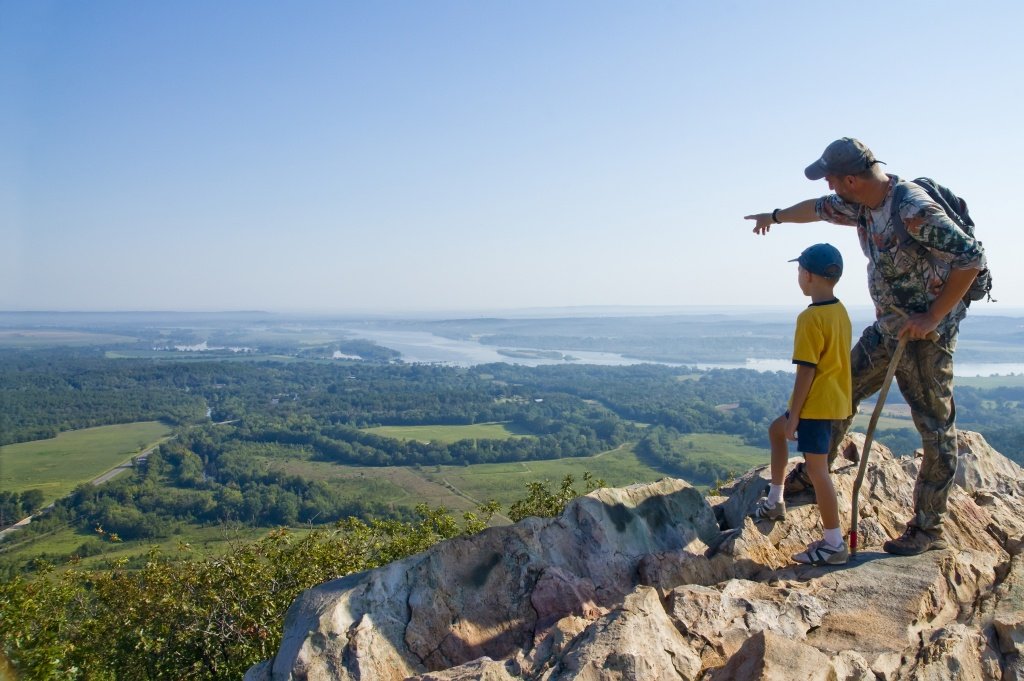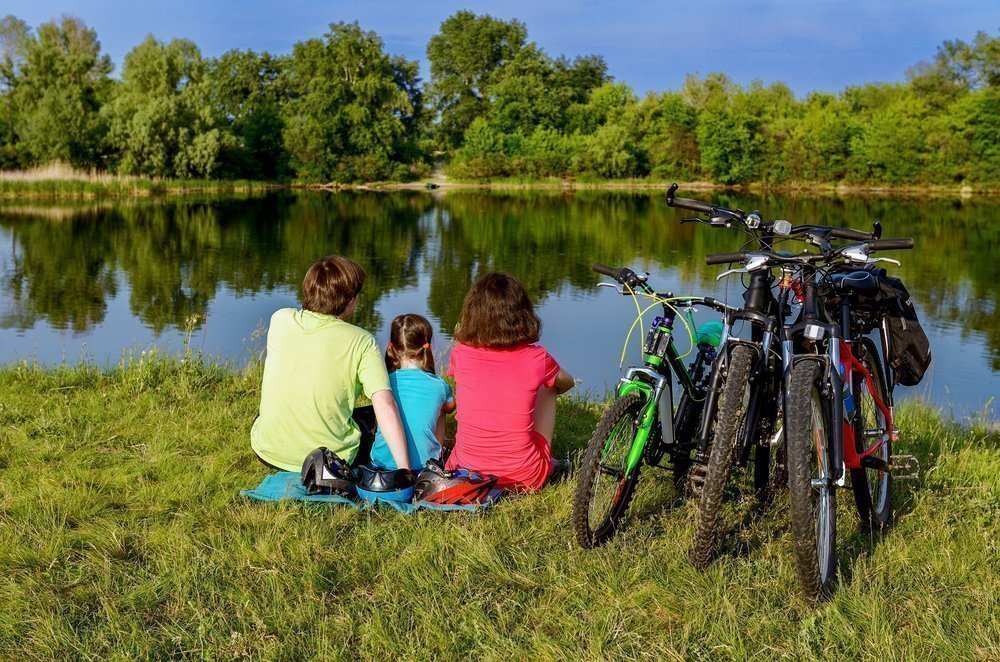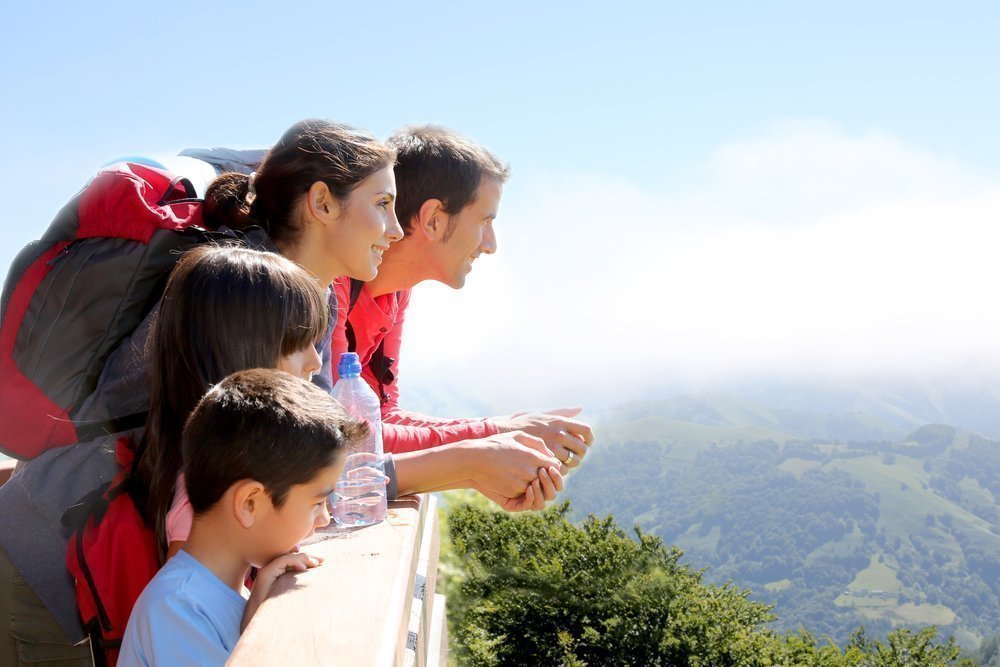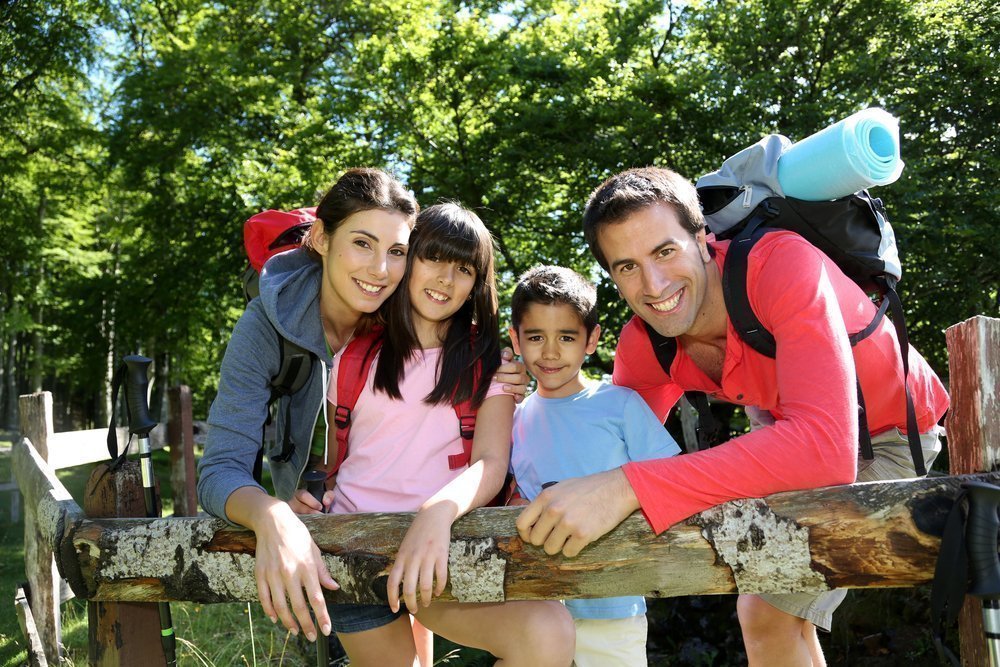Planning an active family holiday sounds like a good idea. But are you sure you’re ready for it? Extreme recreation with rafting or kayaking, hiking in the woods or even climbing a mountain is a wonderful pastime not only for adults, but also for the younger generation. We will tell in detail how to make a vacation not only unforgettable, but also safe and thoughtful. We will listen to expert advice.
Positive generational experience
Half a century ago, when there were no computers and gadgets, and even landlines were not for everyone, kids sat at home much less. Especially during vacations.
In the morning after breakfast the kids went out, and only in the evening were parents able to call their offspring home – hungry, tired, sunburned, with shining eyes and scraped knees, with a lot of impressions.
No matter what you say, but teenagers at that time were more healthy, dexterous, harmoniously developed physically and very often – more responsible and independent. Because, among other things, they had to be much more responsible for themselves and their younger siblings. It was normal not to hire a nanny for a schoolboy, but to entrust children to cope by themselves.
The rest of their summer vacations were spent at the dacha, where they helped the grown-ups with household chores. At the same time, they managed to go fishing, go mushrooming, build a hut, go to a night campfire, and enjoy the indescribable smell of baked potatoes.
Was it good or bad? It’s hard to assess, especially since times change inexorably and irrevocably.
Lost in the Stone Jungle

The younger generation now spends considerably less time outdoors, and communication with parents is minimized. Parents spend more time at work, and in the remaining hours they tend to be occupied with themselves.
The child is left to himself and the Internet, which has everything: and communication, and games that replace reality, and any, not always useful information, and many virtual worlds that are so addictive…
The result is not just misunderstanding between parents and children, but alienation. The role of “ancestors” is reduced to supplying finances, housing, food and clothing, and more or less successfully controlling academic performance.
The teenager often does not know, and does not want to know how parents work, what they are interested in, how they feel, what they know and what they dream about. Parents see their son or daughter only asleep or in their heads on monitors. But this is wrong, and both sides, both generations, suffer from this state of affairs.
How do you regain family ties, restore or rebuild a parent’s relationship with estranged teens?
Family sports
Perhaps accustomed to virtual competitions teenager idea to play sports in real life will not have to taste. But practice shows that it is possible to change the child’s mind. For example, by interest in the new bike, or the prospect to shoot all your virtual friends with cool pictures.
And it’s not so important that it will be a photo – on a horse, on a kayak or hang gliding. The main thing is that they will be real photos and real achievements and victories.
Of course, you have to involve your teenager gradually, without pressure or rigid requirements. At first, you can go on a bicycle or horseback riding trip for a day or even a few hours.
Then, if all goes well, you can increase the distance and load, and one day offer to go on a multi-day bike ride. And impressions, along with videos and photos taken along the way, can be published by the teenager in a blog or on his social networking page.
Even when going to the resort, you can find time for family sports:
- On the Greek islands, in the same Turkey and in no less popular Egypt together with children from 7 years old you can master the art of windsurfing.
- In European countries there are many cycling routes for families with children of all ages, including infants.
- In Egypt and the Emirates you can learn the secrets of diving together with children, children from 10 years old are allowed to dive.
Family tourism

Of course, it is easier and more comfortable to lie in a lounge chair on the beach in Turkey or Montenegro. Food, entertainment, safety and predictability. Children frolic with animators or sit with their tablets and iPhones. Everything is the same as at home, only the climate is different and the sea is splashing nearby.
What if you go rafting on a river in a kayak? Go hiking for a few days? How about riding mountain trails?
You’d be surprised, but many parents do. Family vacations of this kind are quite a sought-after segment of the travel industry.
In Turkey, Slovenia, Bulgaria families with children from 10 years old are offered rafting: rafting down rivers on inflatable watercrafts. In the Caucasus, Altai, Crimea, Bulgaria and Turkey there are horse routes of different complexity and different duration.
Kids as young as 6 years old are offered ponies, and kids 10 and up can travel on a trip saddled by an ordinary horse. Parents with their own travel experiences often gather like-minded companies to spend their vacations on an interesting trip.
What does an active vacation provide?
Parents get an excellent opportunity to communicate with their children in an informal setting, to reveal those sides that in normal city life remain “behind the scenes. The teenager is surprised to see the ever-busy and tired father as a strong, agile, skillful, confident man.
Who both can light a fire with a match, and meat tasty grill, and with an oar / boats / bike deftly manages. And laughs so merrily. And is always ready to support, help and teach.
Natalia, tourist with 30 years experience, mother of 3 children: “For us there has never been a question – to take children with us on hikes or not to take them. How can you leave them at home, if parents themselves go to a wonderful and exciting journey? We took our own on easy hikes when they were still infants, 7-8 months old.
There were times when growing up that they sometimes refused to go with us for various reasons, missed a couple of trips, and then rejoined us. We always went in family groups, so there were at least 3 kids of different ages in the group. It was interesting for them, and there was a competitive spirit.
I can say with absolute certainty: this kind of time together brings family members very close together, strengthens mutual respect, affection and trust.
A teenager gets a sea of opportunities for self-assertion, and the most real ones at that. The very independence that almost all teenagers aspire to – here it is, if you scoop it with a spoon, if you throw it from a cliff into a river.
Prove to everyone, and to your parents in the first place, that you are an adult, that you are able, capable and worthy.
If a teenager has had an unhappy love affair, has problems with computer addiction, bad company, or worse, drugs, physical removal from the subject of addiction can also be very helpful.
Although, most likely, at first, the child will resist as much as he or she can. But the teenage psyche is plastic enough, and difficulties can be overcome.
Important points

Planning
When deciding to go on a trip with children, it is extremely important to carefully plan everything: the route of the trip, the length of the trip, the connection to civilization, and more.
Do not overestimate the strength – neither your own, nor that of the youngest participant. It is imperative to include in the group a medic and someone with real knowledge and experience in the chosen method of travel.
Security
The complexity of the route will have to be sacrificed for the sake of safety. Nevertheless, it is necessary to conduct a thorough briefing of all members of the group, without exception, with a test of learned knowledge and skills, before the start of the trip.
This is the beginning of independence and responsibility, which is why teenagers set off on their journey. The group should lead an experienced instructor, the route is agreed in advance.
The route and control points must be known to the relatives, in addition to the tourist club or travel agency that organizes the trip or hike.
First Aid
A well-stocked first aid kit is mandatory. Adults should be able to provide adequate first aid, and know exactly where to seek medical help at every point along the route. Thanks to the advances of civilization – now you can always have at hand a compact medical guide “Companion on the Road,” in the form of a mobile app on your smartphone.
Nutrition in Nature
Cooking a tasty meal over a campfire is not a difficult thing to do, because after physical activity, any meal in nature seems doubly tasty. When traveling, it is important to observe hygiene and sanitary requirements, not only for food, but also for water.
Drinking water is better to take bottled, but it’s not always possible. Stock special filters and disinfectant tablets, and you can boil water before drinking.
All group members should have a concept of poisonous and edible plants and mushrooms.
Insect protection
Blood-sucking insects can ruin any travel pleasure. This applies to mosquitoes and midges as well as to ticks. The latter become a real scourge of outdoor recreation. Ixodes ticks carry not only encephalitis, but also other diseases that are no less unpleasant and dangerous.
You can be vaccinated against encephalitis, but there is no vaccine against Lyme disease. In advance, stock up on repellents, which are effective against flying and crawling blood-sucking insects. Clothing is also better to choose the appropriate, especially for hiking.
Expert’s comment
Theoretically, the idea of parents and teens spending time together can only evoke positive emotions. For teenagers any trip somewhere together with their “parents” in the form of lying on the beach, cultural program, acquaintance with historical values and shopping can only cause a contemptuous grimace.
And here is extreme – oh, that’s it! Here you instantly awakens a mad enthusiasm, respect for the “parents” goes off the scale and remains at a mark of 100 points, followed by unconditional vows to immediately and rigorously implement all that they will be told or commanded.
Parents are happy-what a brilliant chance to raise their prestige, to establish contact with their fidgety and rebellious offspring, to gain their respect. But is everything as rosy as it seems?
When conceiving of such an event as extreme hiking with their children, parents should definitely and one hundred percent provide for the following points.
- Whether your children are well prepared from the sporting point of view (the fact that such training should be you yourself, is not discussed). For the fact that your child enjoys riding a bike in the country village does not mean that he will be able to go 150-200 kilometers a day on the bike race. The same applies to other athletic skills.
- Have you done this route yourself? Are you sure that the maps are correct, that nothing has changed in the road situation, that the settlements indicated on them exist, and that camping sites are still available?
- Are your bikes (kayaks, boats, etc.) roadworthy, checked, repaired, do you have all the necessary parts, do you know how to make any repairs, do you have all the necessary tools?
- Are you healthy, you don’t have any chronic illnesses, you have a fully stocked first aid kit, you know how to deal with all kinds of injuries, are you traveling in a route that medical help can get to you if needed? Do you know how to perform CPR, tourniquets, intramuscular injections, and the like?
- Are you confident that your children will enjoy a rather Spartan lifestyle, and that the pleasures of camping will outweigh their discomfort?
- Do your family and friends know exactly what your itinerary is? Do they know all the points you must pass through? Have you set the exact time of the control call? Do your family members know who to contact in case that time is overdue?
- Do you know how to drive yourself if one of your children falls behind in the group? Do the kids know that? Have you practiced emergency behavior skills?
- Is your GPS device in good working order?
If you give an affirmative answer to all these questions, then you are quite ready for an extreme vacation together with your children. But I don’t doubt that some of the parents have already wavered on the third point and said that if you go through all this trouble, you don’t need a vacation at all. And for nothing.
He who is warned is armed. And it’s better to anticipate all possible unpleasant situations, than not know what to do if you suddenly have to face them.
Have a great time, everyone!
Any joint activity, if it causes sincere interest in children, promotes the establishment of relations between parents and children. Of course, extreme travel can have a greater effect by virtue of its specifics – there people, as a rule, face a series of really dangerous situations.
In order to overcome them, they have to interact and help each other, and that in itself is a great bonding factor. Nevertheless, before the journey, it is important to find out how much the child even wants to go on such an adventure – after all, not everyone is obsessed with the dream of conquering Mount Everest.
If a teenager is not interested in all this, it will only cause irritation and rejection. Relationships from this will certainly not improve, rather the opposite.
As for overcoming addictions, yes, extreme hiking can help. Addiction (including drug addiction) is a purely psychological problem. A 2-3 week course of Dektox helps to normalize the organism after a long period of taking drugs. But it is psychological addiction that makes a person return to drugs. In this case, a long trip to the reserved places, where, firstly, there will be a lot of interesting things, and secondly, the lack of opportunity to get these very drugs, will be beneficial.
The child will understand that there are many beautiful things in life, and he may even become interested in something, get acquainted with someone. All of this will help take his mind off former attachments.
The same is true of computer games and unhappy love. Any addiction is treated with love and understanding from loved ones and a regulation on communication with the object of unhealthy attachment. So, first surround your child with love, show interest in his inner world, and then pack your backpacks and – on Everest!

The articles on this site are for information purposes only. The site administrators are not responsible for attempting to apply any recipe, advice or diet, nor do they guarantee that the information provided will help or harm you personally. Be cautious and always consult a doctor or nutritionist!
*All products recommended by thefirstdoc.com are selected by our editorial team. Some of our articles include affiliate links. If you buy something through one of these links, you help us earn a small commission from the seller and thus support the writing of useful and quality articles.





